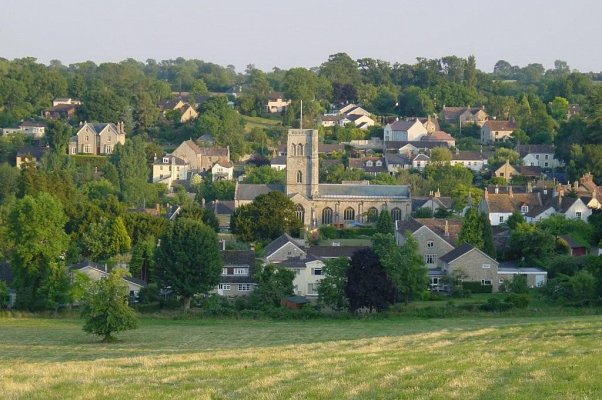Wedmore solar scheme puts village 'back on electrical map'
by

In 1908, the Somerset village of Wedmore was one of the first places in the county to enjoy the benefits of electricity.
Local man William Burrough set up the Wedmore Electric Light and Power Company, enabling residents to get access to mains power for the first time.
The Edwardian villagers were generating their own electricity 16 years before the neighbouring – and much larger – city of Wells.
By 1911, the business had really taken off and was turned into a public company, which locals could buy shares in.
The nearby parishes of Theale and Blackford did not get power until 1920.
Today, some 100 years after Mr Burrough's achievements, a group of local residents are trying to put Wedmore back on the electrical map.
"We've got a community-owned green energy system that we think would make WG Burrough proud," said Robin Mewes, managing director at Rooftop Consulting Ltd.
Rooftop is working with Wedmore Green Group on plans to bring a £1.1m solar power plant to the village.
'Own it'
"We want to take control of our power supply, locally," Mr Mewes said.
"The only way you can effectively do that is to 'own it'. So that's the plan."
Both companies make up the Wedmore Community Power Company (WCPC), which will be run as a co-operative, so local people will be able to buy a stake.
WCPC wants to develop two micro-generation sites on 1.7-hectare and 0.75-hectare of farmland to the north of the village – preliminary agreements are already in place with landowners.
Its 4,000 solar photovoltaic panels would generate enough "clean electricity", about 1MW, to support more than 300 local homes.
The WCPC hopes to plough money back into Wedmore in the form of community groups
"It is low impact and visually unobtrusive. It will be fully removable and recyclable," said John Whiten from Ethical Solar Ltd, who is also part of the WCPC project.
"It would take four to six weeks to install, it is very simple. The project has a lifetime well in excess of 20 years.
"The panels are one metre (3.3 ft) off the ground and the land will still be available for grazing. It will keep maintenance costs down as the sheep will 'cut' the paddocks."
The aim is to surround the panels with native and locally-sourced hedges and fencing – for security purposes and aesthetics.
Public meeting
At the first public meeting to discuss the scheme, around 70 people packed into Wedmore First School Academy to hear from those behind it.
Questions from the floor included everything from what would happen to the panels in high winds, and how much maintenance they need, to can they withstand being peppered from the air by starling excrement.
"I think it's a great idea. It's something that will in the future allow us to have more secure energy supplies having produced it locally," said attendee Rosemary Hassler, who has lived on the road neighbouring the proposed development for 18 years.
"I would be interested in investing some of my pension money in it. I wouldn't want to invest in one that isn't local, here the benefits would stay locally."
The cooperative has been set up in such a way that every year a grant will be given to the community.
Some £5,000 is promised in the first year alone, with the board and its members voting for which groups and organisations it will benefit.
"The real benefit of a scheme like this is about taking responsibility and control of the power you use and ploughing the money back into the community," said Tessa Munt, Liberal Democrat MP for Wells, who attended the meeting.
"Particularly into fuel schemes for vulnerable villagers and for those with hard to heat homes. I think it's fantastic."
The scheme promises a return of 5% on members' investments in the first year. The shares will have a minimum and maximum spend, slated to be approximately £250 and £20,000 respectively.
"The WCPC is not a charity and it is not a charitable venture. We will need to pay a fair return to investors. It has to be profitable," said Mr Mewes.
Source: http://www.bbc.co.uk/news/uk-england-somerset-20985204



